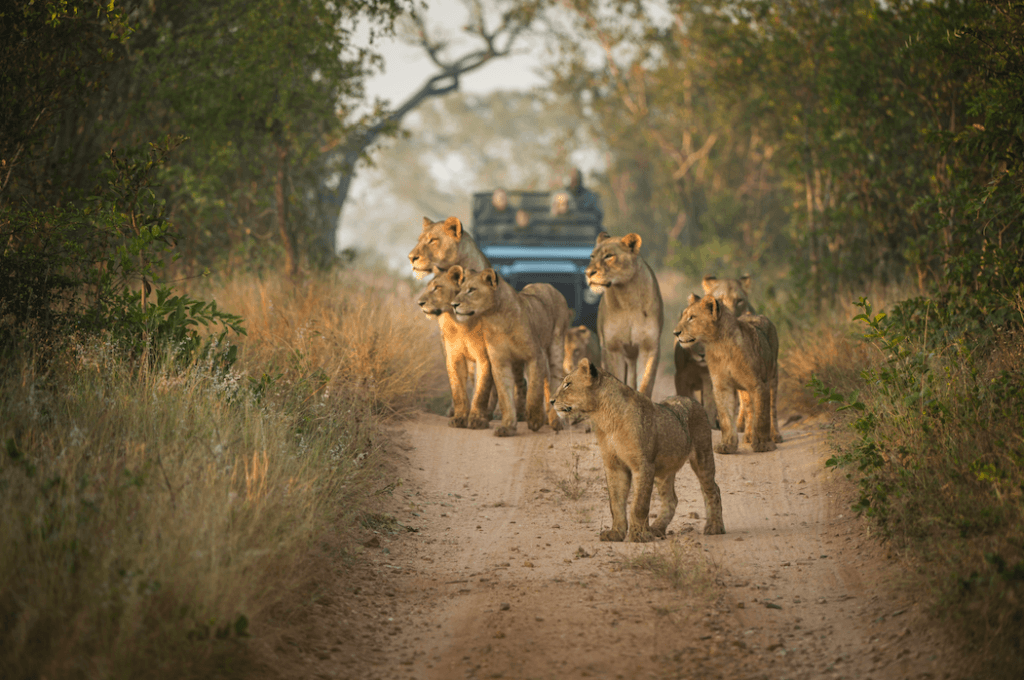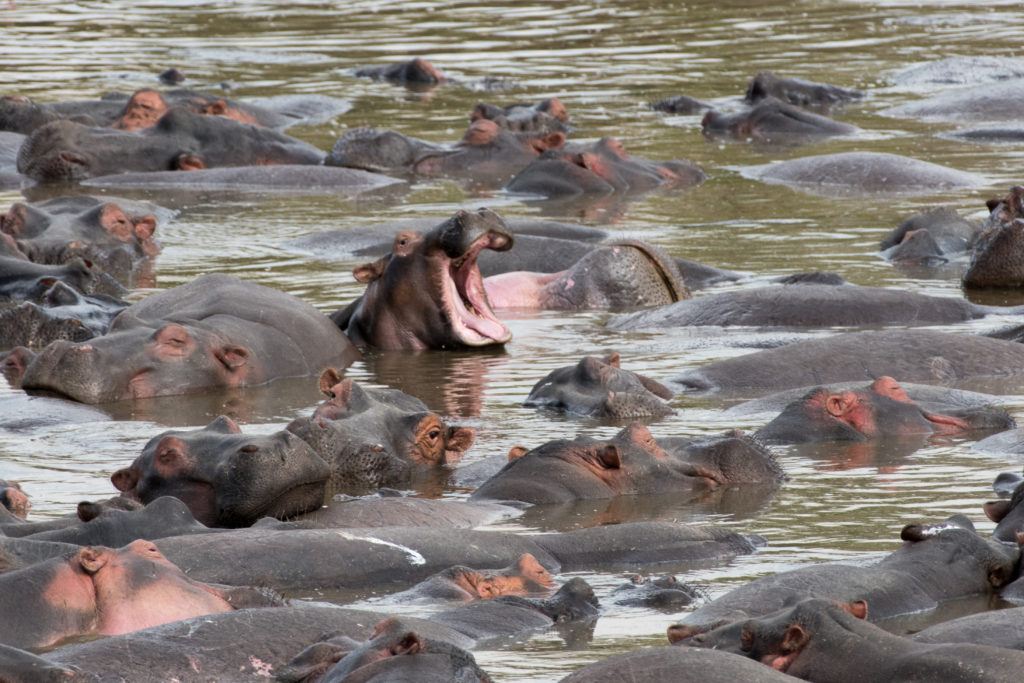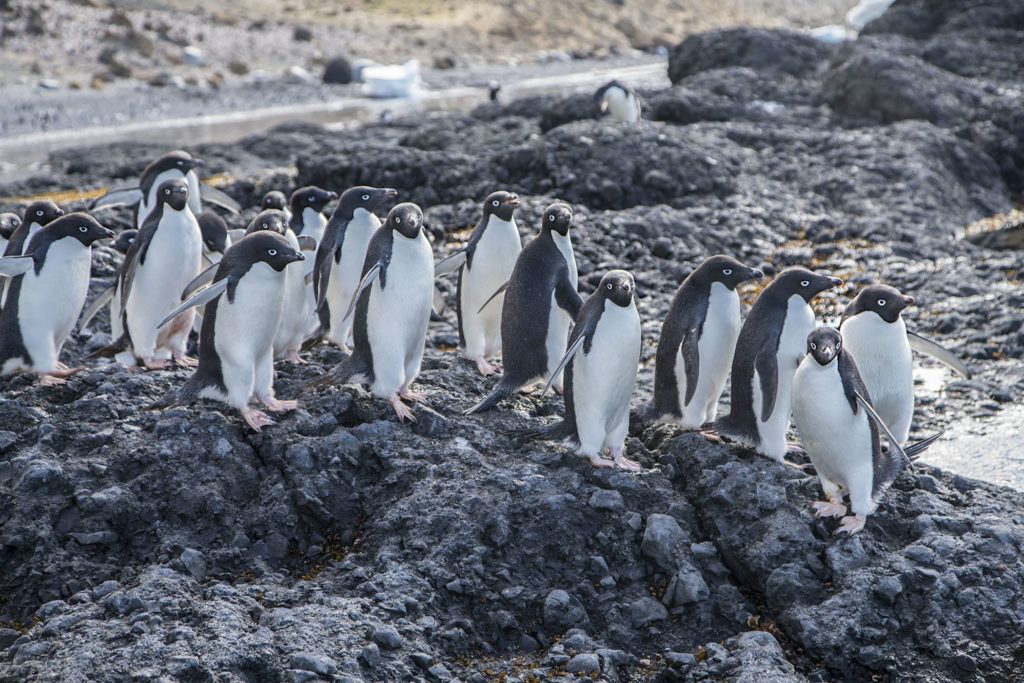As summer brings longer and warmer days, it also ushers in long-awaited vacations and global adventures. Traveling to faraway places can allow us to marvel at nature and wildlife––but how we choose to appreciate it has more impact than most realize.
With tourism booming around the world, it is increasingly important for travelers to be more thoughtful in their choices of experiences and selection of tour operators. As exposed by a recent National Geographic article, participating in a seemingly innocent activity as riding an elephant or purchasing a tiger fang promotes the exploitation of animals. It also deprioritizes the conservation of their habitats and fails to create sustainable income for local people.
The good news is that informed travel decisions can benefit conservation. Seeing wildlife in their natural landscape makes for an extraordinary, once-in-a-lifetime experience, and by choosing responsible travel, tourists can play a central role in protecting wildlife and their habitats. Sustainable ecotourism is proving to be a powerful tool for stimulating local economies and empowering local people to protect wildlife, rather than resorting to short-sighted exploitations such as poaching and deforestation. Quite simply, ecotourism motivates people to ensure that wildlife remain healthy and alive.
In Africa, safaris are a big tourist draw, and topping the list of animals people most want to see is the savannah’s apex predator, the lion. For safaris to succeed, natural landscapes and wildlife must be thriving. Recognition of this intrinsic relationship led WCN’s Lion Recovery Fund (LRF) to form the Lionscape Coalition in March 2019. This program partners with and empowers Africa’s leading ecotourism operators to support on-the-ground conservation work with LRF grantees, while also encouraging their clients to support the recovery of lions and the restoration of their landscapes.
In most places where lions live, people also live, and often in poverty. “Hungry people cannot care about conservation,” asserts Dr. Colleen Begg of Niassa Lion Project (NLP). In Mozambique, NLP is working to solve this problem by facilitating conservation tourism for the local community to implement and manage––and in the process, directly creating income and employment for the people who live with lions and other wildlife. The first camp, Mpopo Hippo Pool, debuted in 2018 and is a part of a series of rustic trail camps designed with locally-sourced materials and with low environmental impact in mind. Tourists visiting the area get a true off-the-beaten-path experience in one of Africa’s most remote and stunning landscapes. Through ecotourism, Niassa Lion Project helps people to harmoniously coexist with lions and with the countless other species that share their habitat.
It’s not just lion conservationists that use ecotourism to protect wildlife. In Patagonia, Argentina, in an area where penguin colonies were once threatened by pollution and poaching, the Global Penguin Society (GPS) and Hotel El Pedral—as supported by World Nomads’ Footprints Network—have developed ecotourism centered on penguins. This effort has played a crucial role in the recovery of penguins in Puerto Madryn and has successfully converted locals into penguin protectors. Tourists have the thrill of strolling amongst a rookery of Magellanic penguins, sometimes with charming, close encounters, all while supporting the conservation of the penguins’ habitat.
To travel is to enjoy new and life-changing experiences, and encounters with wildlife can be some of the most unforgettable. Around the world, the exploitation of wildlife is unabating, and tourists can inadvertently become contributors to the problem. On the other hand, choosing responsible ecotourism can profoundly contribute to the conservation of wild lands and wildlife. As global tourism swells and tourists are increasingly interested in wildlife encounters, an opportunity is arising for local and ethical ecotourism to meet demand while developing local economies and conserving the world’s endangered species.
Tips on how you can responsibly and ethically engage with wildlife while traveling:
- Do not engage in tamed animal experiences. (Examples include: riding elephants, taking paid selfies with monkeys, or holding tiger cubs.)
- Never purchase souvenirs or other items that are made from endangered species. (Examples include ivory carvings, sea turtle shell jewelry, and tiger fangs.)
- Do not consume “delicacies,” such as shark fin soup or pangolin meat, that are made from endangered wildlife.
- Be diligent when choosing your tour company and travel insurance.
- Check to see if they have proper guidelines regarding wildlife encounters.
- Ask if they give back to wildlife conservation.
Other Resources:
- Guidelines for ethical animal encounters
- List of souvenirs to avoid by country
- List of wildlife souvenirs to avoid
Amongst the choices tourists make, even travel insurance can have an impact. For example, when booking coverage plans with World Nomads, individuals have the option to make a donation to their philanthropic arm, Footprint Networks, which has provided support to WCN Conservation Partners Global Penguin Society, Proyecto Tití, and MarAlliance.
The following WCN Conservation Partners and organizations in WCN’s extended network offer ecotourism opportunities:
- Lionscape Coalition, a Lion Recovery Fund initiative. Members include:
- Mpopo Trail Camp, a Niassa Lion Project program
- Hotel El Pedral, a conservation partner of Global Penguin Society
- Elephant Watch Camp, a Save the Elephants program
- Macaw Recovery Network offering tours and impact experiences via AirBnb
- Snow Leopard Conservancy’s Himalayan Homestays program
- Blue Ventures hosts a range of marine conservation expeditions and is developing community-based homestays.
- Polar Bear International partners with Frontiers North for field visits to meet with PBI experts.
- African Parks has partnered with Wilderness Safaris on a new a new luxury safari camp in Rwanda.




